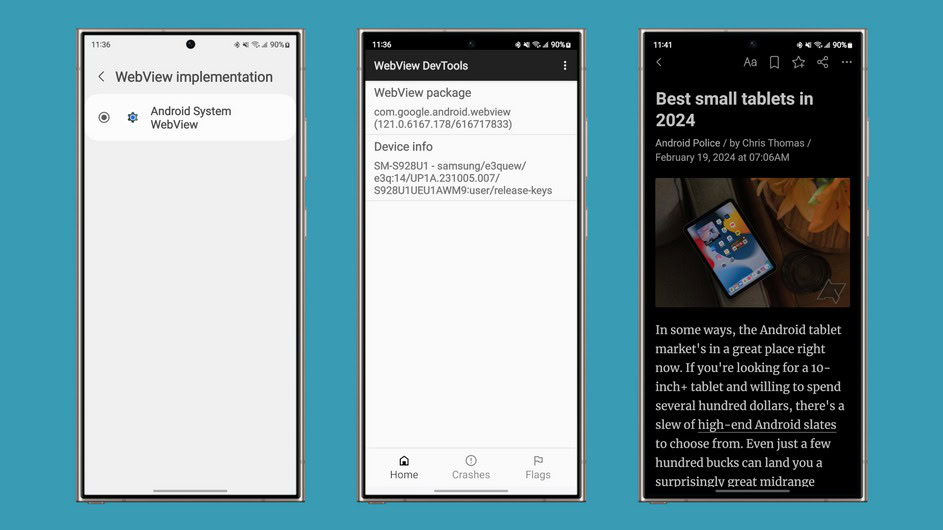Affiliate links on Android Authority may earn us a commission. Learn more.
Android 15 comes with an important WebView change that could speed up apps

- Android 15 Developer Preview 1 is locking an important working component of the Android System WebView into memory.
- This will prevent the Android system from killing the process and restarting it frequently.
- Many apps use WebView to display webpages and other internet content, and this change could improve how they work.
Android 15 is the next big update for the smartphone platform, and we’re slowly getting more information on the changes it brings. One of the more important changes that Android 15 could bring is the ability for the system to pin Android’s WebView to memory, consequently speeding up apps that rely on WebView for functioning.
Before understanding the change, we need to understand what WebView is and why it is important. WebView, also known as the Android System WebView, is the part of the Android OS that many apps tap into to display a webpage. Apps that want to display a webpage do not need to build a full internet browser, as they can call upon the Android System WebView to display web content.
Many apps use WebView to let users access non-core functionality, such as help pages. Many apps also use WebView for their core functionality. Depending on how many and which apps you have on your phone and how you use your phone, you could be invoking WebView many times daily.
AndroidPolice notes in their report that Android 15 is “pinning” one of the important working components of WebView, which, as we explain above, is used in many apps regularly.
More specifically, Android 15 is locking part of the trichrome library that WebView uses into memory. When app processes are locked into memory, the OS deprioritizes killing them when it needs to free up RAM during regular memory management, and the app process can be called into use quicker without as much draw on resources (as opposed to regularly killing the process and restarting it every time it is needed).
This way, all the apps that rely on WebView will have a marginal improvement in their performance (on the bits that use WebView), especially on devices with less RAM where processes are more frequently purged from RAM.
The report mentions that there is a possibility that Google could revert this change since we are still in the early days of Android 15. It is also possible that OEMs will undo the change when they adopt the Android 15 update for their devices. But the report also notes that WebView could be a good focus with the update, as Google could also make WebView more modular through a new Project Mainline module. So there are exciting under-the-hood changes in store in how apps could work on Android 15.
